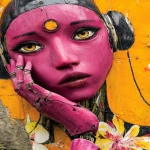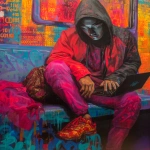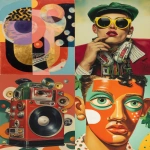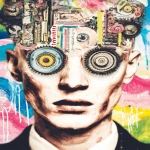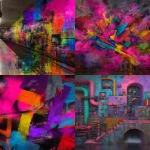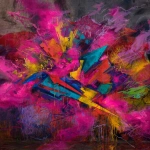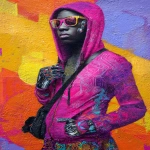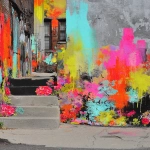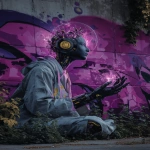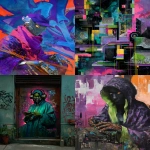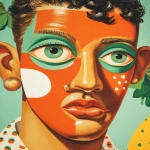Explore the Best AI Image Gallery
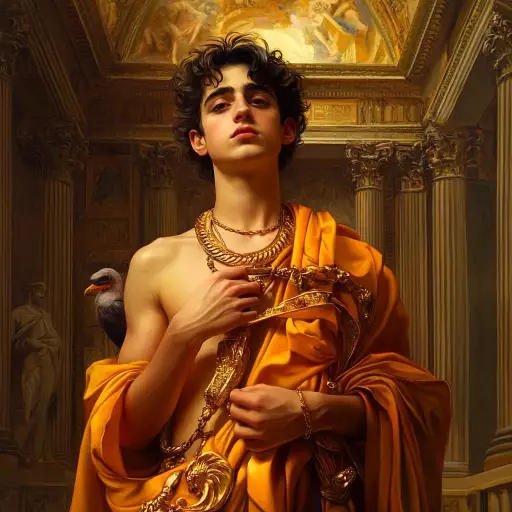
Beyond the Brush: How Blockchain is Reshaping the Creative Industry
The world of art, music, and design has long been marked by the struggle for ownership, authenticity, and fair compensation. Enter blockchain technology, a decentralized and transparent system poised to revolutionize how creatives produce, share, and monetize their work. This groundbreaking innovation promises to empower artists, foster collaboration, and redefine the very landscape of the creative industry.
A New Canvas for Creativity
Blockchains inherent immutability provides a secure and verifiable record of ownership and provenance for digital assets like artwork, music files, and design blueprints. This means artists can confidently establish their rights and control the distribution of their creations, eliminating the risk of counterfeiting and plagiarism.
Applications Across Artistic Domains
- Digital Art: Blockchain-based NFTs (Non-Fungible Tokens) have emerged as a revolutionary tool for digital artists. By tokenizing unique pieces of art, creators can directly sell their work to collectors, bypassing traditional intermediaries and retaining a larger share of the profits.
- Music Industry: Musicians can leverage blockchain to distribute their music directly to fans, ensuring fair compensation and empowering independent artists. Smart contracts can automate royalty payments, streamlining the process and reducing reliance on centralized platforms.
- Design & Intellectual Property: Blockchain offers a secure platform for registering and protecting intellectual property rights. Designers can timestamp their creations, providing undeniable proof of ownership and preventing unauthorized use.
The Potential for Collaboration and Transparency
Beyond individual creators, blockchain fosters collaborative ecosystems where artists can seamlessly share resources, contribute to projects, and receive recognition for their contributions. Smart contracts can automate agreements and ensure fair distribution of royalties within creative teams.
Furthermore, the transparent nature of blockchain allows for greater accountability and traceability within the creative industry. Every transaction related to a work of art or intellectual property is recorded on an immutable ledger, promoting trust and reducing the risk of fraud.
Navigating the Ethical Landscape
While blockchain holds immense promise, its integration into the creative industry also raises ethical considerations:
- Accessibility & Equity: Ensuring that all creators, regardless of their technical expertise or resources, have access to blockchain technology is crucial.
- Data Privacy & Security: Robust security measures are essential to protect sensitive artist data stored on the blockchain.
- Environmental Impact: The energy consumption associated with some blockchain networks needs to be addressed through sustainable practices and alternative consensus mechanisms.
Looking Ahead: A Future of Artistic Innovation
Blockchain technology is poised to continue its transformative journey within the creative industry. As the technology evolves and matures, we can expect to see:
- Enhanced Creative Tools:** Developers will create new blockchain-based applications that empower artists with innovative tools for creation, collaboration, and distribution.
- **New Revenue Streams:** Blockchain will unlock novel revenue models for creators, enabling them to monetize their work in more diversified and sustainable ways.
- Greater Fan Engagement: Blockchain will facilitate direct connections between artists and fans, fostering communities and providing opportunities for participatory experiences.
The convergence of blockchain and the creative industry is an exciting frontier. By embracing this technology responsibly and ethically, we can unlock a future where creativity flourishes, artists are empowered, and the value of artistic expression is truly recognized.
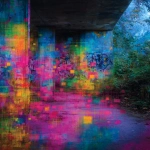
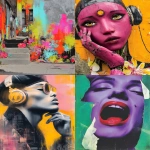



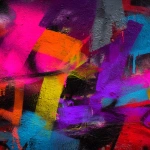
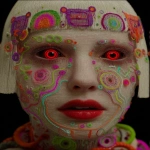
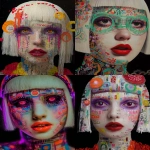
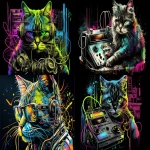
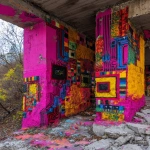
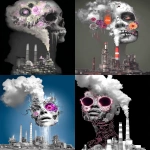
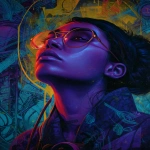

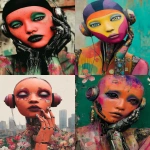
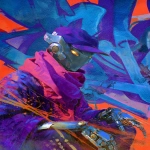

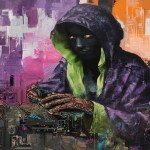
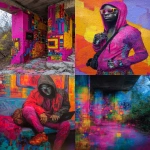
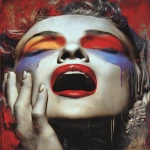
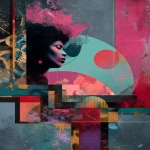
](https://images.ai-img.art/thumbnails/150/664a559b73eaff070d6f7fc7b3b151718aef9fa3a3f12f90b3c9092ceaa3cb56.webp)
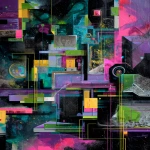
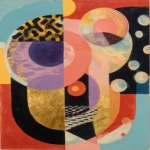



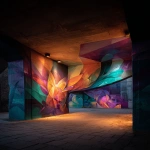
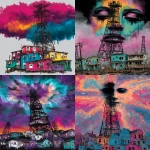
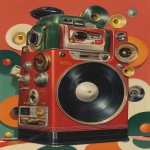
](https://images.ai-img.art/thumbnails/150/33d5e6d1da2b8ec2c4b8eab20d051c27c26d7a4991a77faf06fd03e96617fb1e.webp)
](https://images.ai-img.art/thumbnails/150/1aa8215ea9a4f6970e81a10bdb4feb3b08d5e1a202c3c7ed2c9380f2f63d5a74.webp)
